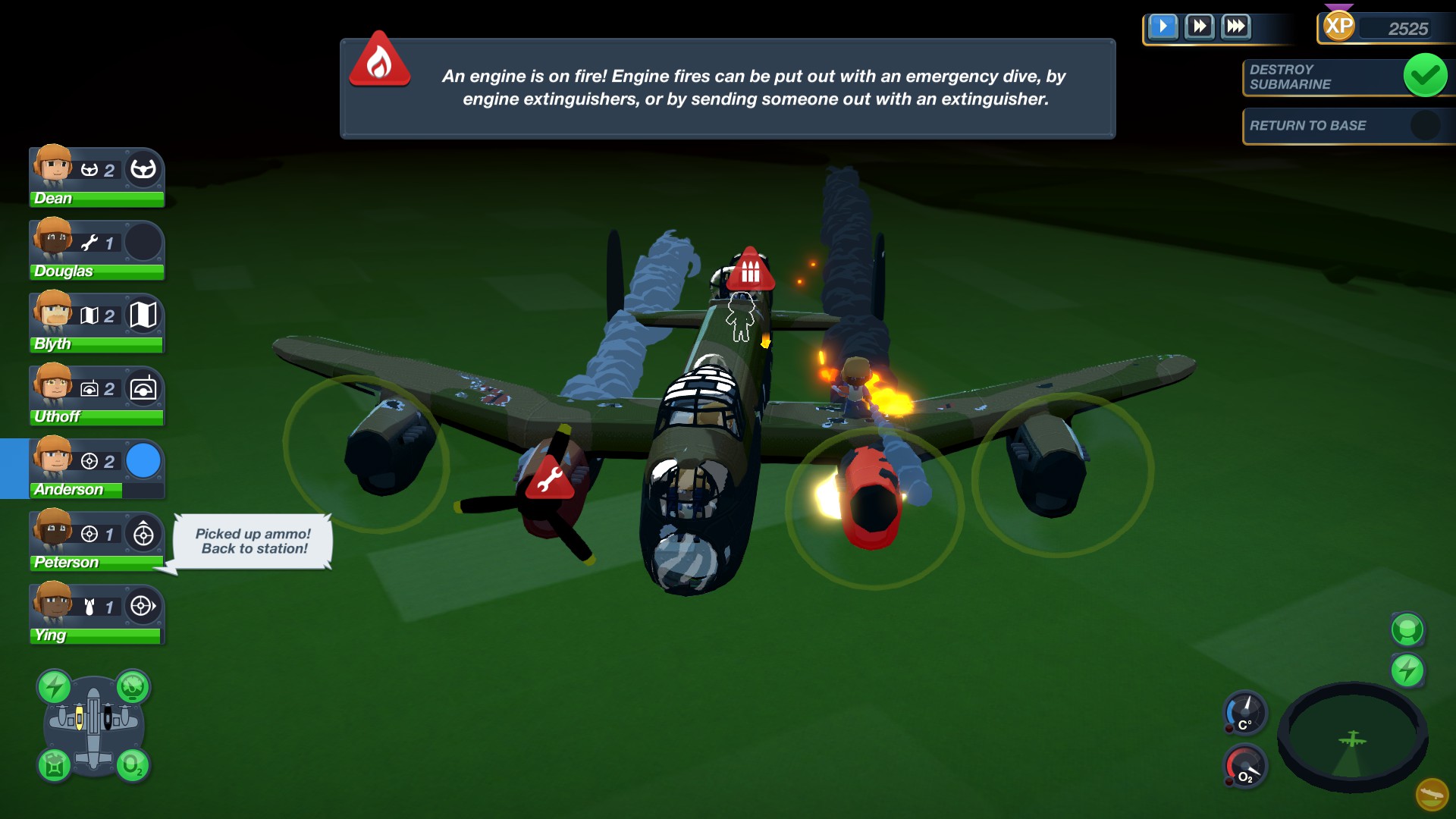
I haven’t the heart to tell my friend what happened to her Bomber Crew character. Hopefully, she’ll never read this.
She was one of our finest flight engineers. One night, on a perilous return from a raid over France, she crawled out onto the wing to fix a wheezing engine. Suddenly, the plane came under attack from a group of Messerschmitts and the pilot, who for his own safety shall remain anonymous, began evasive maneuvers.
The maneuvers were very evasive.
Our flight engineer flung off the wing, and was last seen plummeting toward the English Channel which, I hear, is particularly cold this time of year. But this is just one of the many malfunctions and mistakes I've suffered through in Bomber Crew. There’s also the time I forgot to change course for 10 minutes and flew to Germany, the time I forgot that there was a bandit hiding under our plane shooting the bombs out of the hold, the time our plane broke up on landing and, classic of classics, or the time our plane broke up just before landing. How we laughed.
Despite a dozen such disasters, I keep going back for more and it’s the belief that I can always do better that feeds my addiction. Often I can, because it's a deceptively simple game. Flying has never been easier and all it takes is a few clicks to order my crew to take off, to begin a bombing run, or to fix those failing hydraulics.
Often described as "FTL meets World War II," this appellation isn’t wholly accurate but it does capture the chaos you feel in both games when shit hits the fan. Bomber Crew has you controlling up to seven people who scuttle about inside a lumbering Lancaster, though instead of FTL’s ongoing, randomly generated interstellar journey, it presents a selection of missions with set objectives. Between sorties both plane and crew can be gradually upgraded, and the loss of either doesn't end your game.
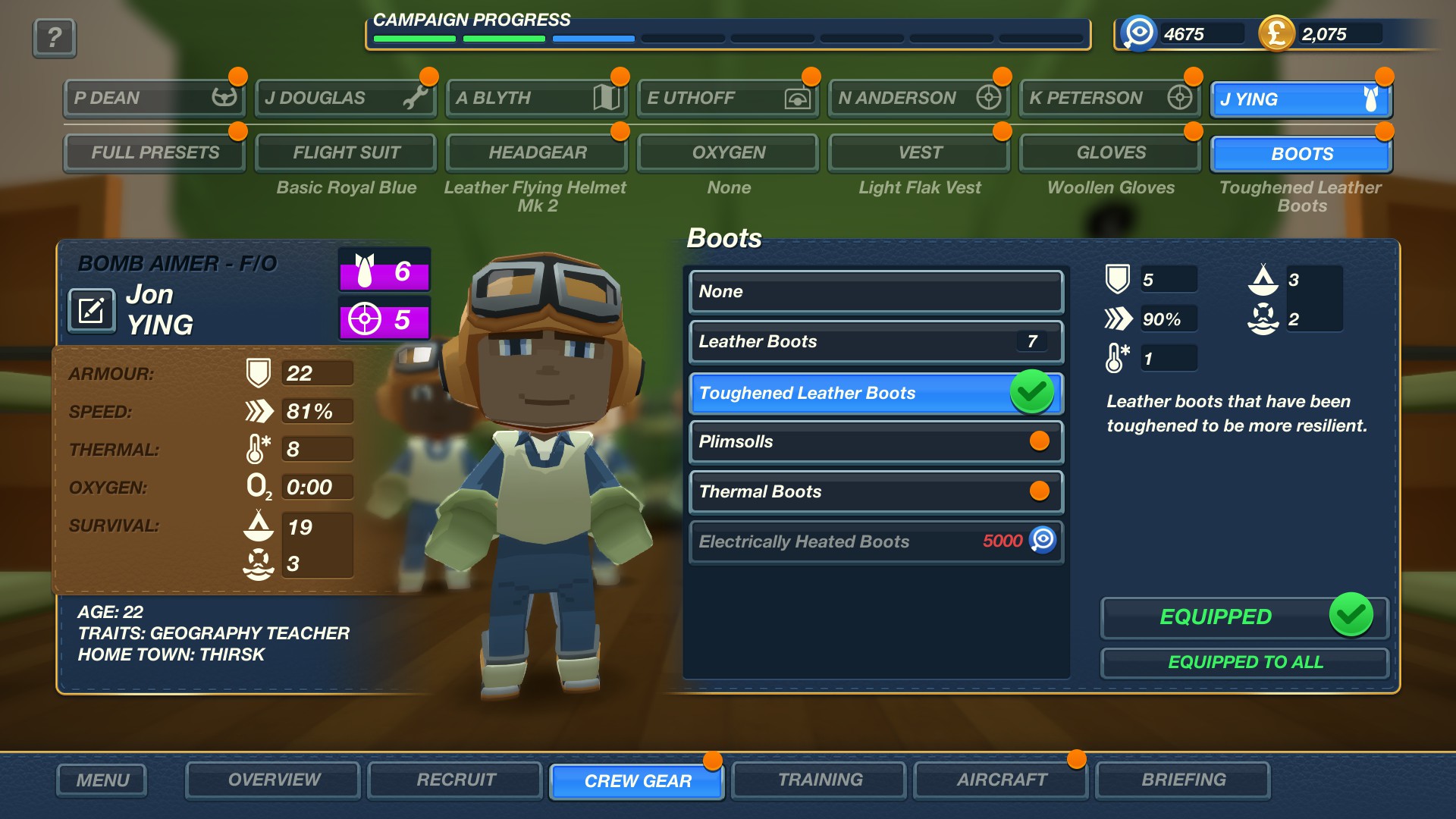
Maybe more than FTL, though, calamity snowballs in Bomber Crew. There isn't enough crew for me to staff every station, so when my navigator gets incapacitated, I might pull my engineer off their station to revive them. But then the hydraulic system fails. And an engine's on fire. The rear turret is out of ammo, and we need to set a new heading, which needs someone at the navigator station.
The biggest gaming news, reviews and hardware deals
Keep up to date with the most important stories and the best deals, as picked by the PC Gamer team.
Individual problems are pretty easy to handle, it’s a whole different story when multiple things go wrong. Which they do. Constantly.
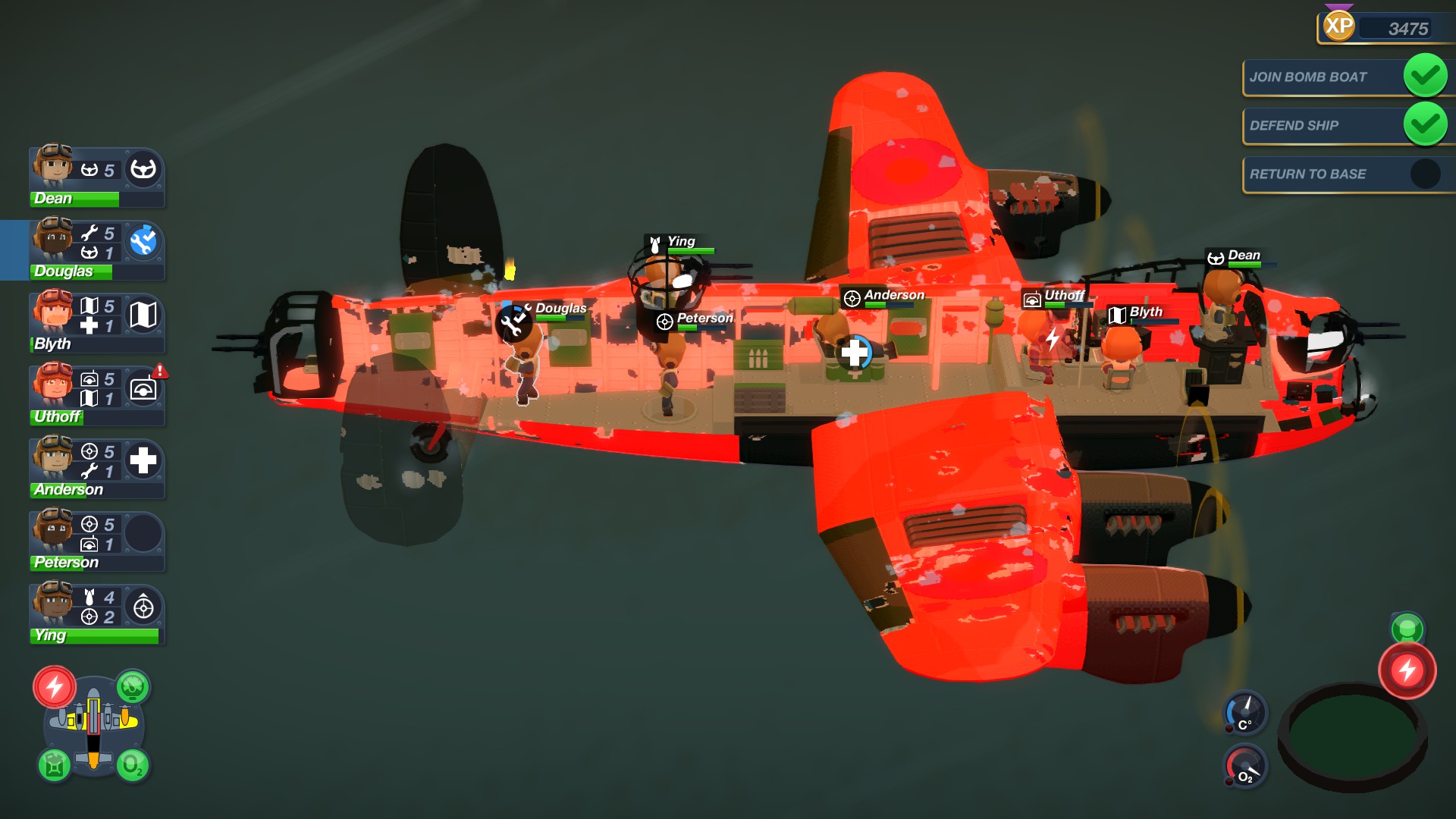
Almost every task, whether that’s arming a bomb or sending a crew member to a new station, demands little more than the press of a button. A few, such as setting a new course or tagging a bandit for your gunners, require you to briefly focus the camera on a target and, as you might’ve guessed, the precious seconds you lose focusing the camera in the middle of a frantic firefight prevent you from doing anything else. Your attention is a resource that's always in demand, and getting the most out of each crew member throughout the flight is really difficult.
Thankfully, it doesn’t feel cruel all the time. Though many of my first missions have been a bit of a mess, Bomber Crew has scaled its difficulty gradually. When things have gone horribly wrong, I’ve often found myself all too aware of what I could’ve done either better or differently. Many missions offer critical advantages, such as temporarily reducing enemy damage or flak intensity, meaning it’s wise to tackle them in a particular order, and I’ve learned that practical aircraft upgrades are better than just adding more guns. A self-sealing fuel tank is a gift from god.
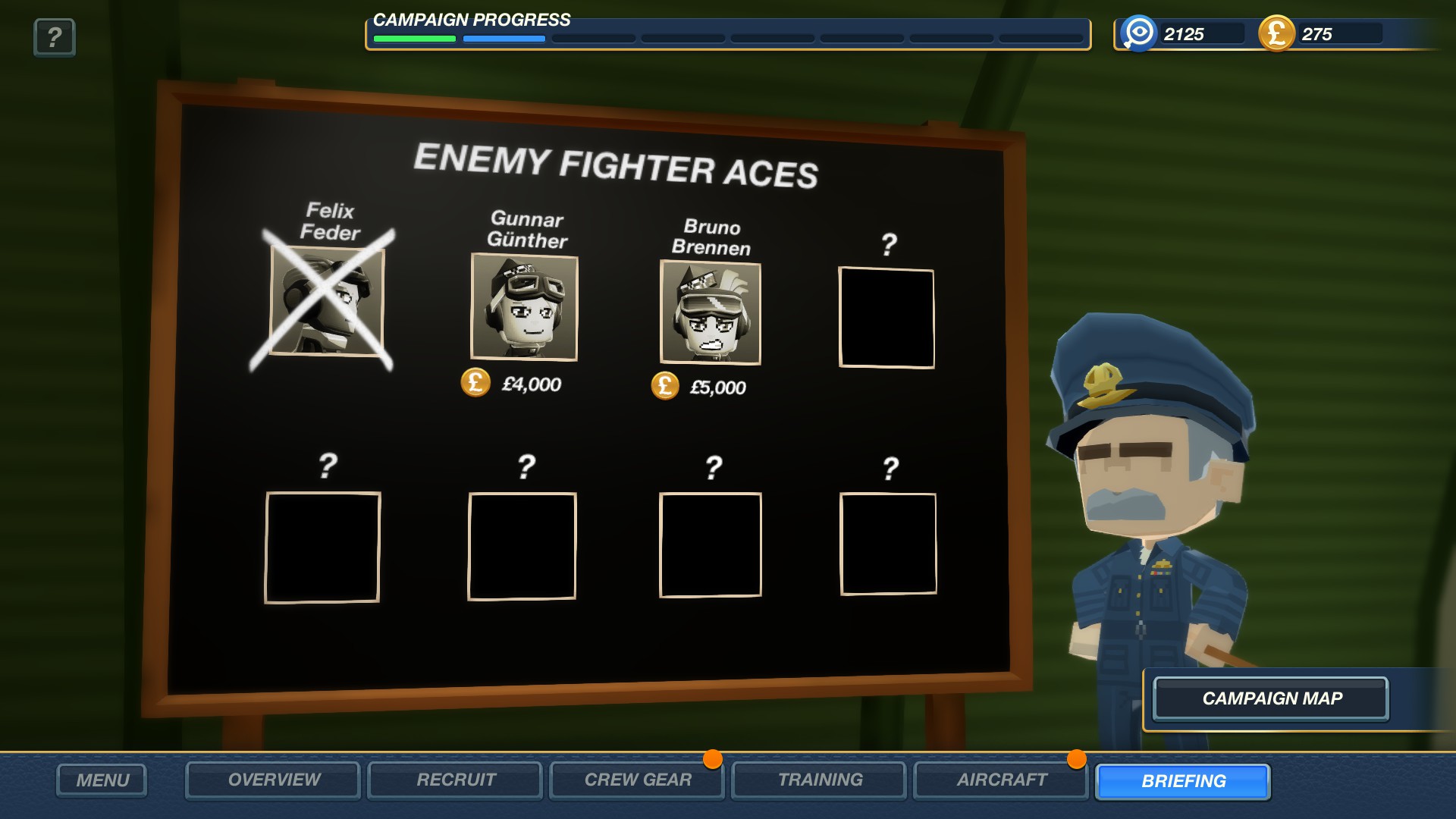
As you might’ve gathered from my opening anecdote, Bomber Crew also refuses to take itself too seriously, even while it’s finding new ways to blast me out the air. Its cartoonish style and bubble-headed bombardiers remind you that this is in no way a simulation, even if there is a reasonably authentic representation of damage and a plane's interconnected systems. There’s little attempt to model realistic physics or flight models and the miniature map of Europe exists to get you into the action as soon as possible, meaning you can cross the channel in a heartbeat and be eating flak before breakfast.
I have a theory that, like cooking, the secret of a successful Bomber Crew mission is timing. It’s knowing exactly when you’ll have five free seconds to aim and drop your bombs. It’s knowing when you can afford to pull someone out of a gun turret and send them to patch up a pal. It’s knowing just when to enable one of your aircrew’s special abilities, like increased focus or an evasive dive, as those cooldowns feel so painfully slow when there are 10 fighters on your tail.
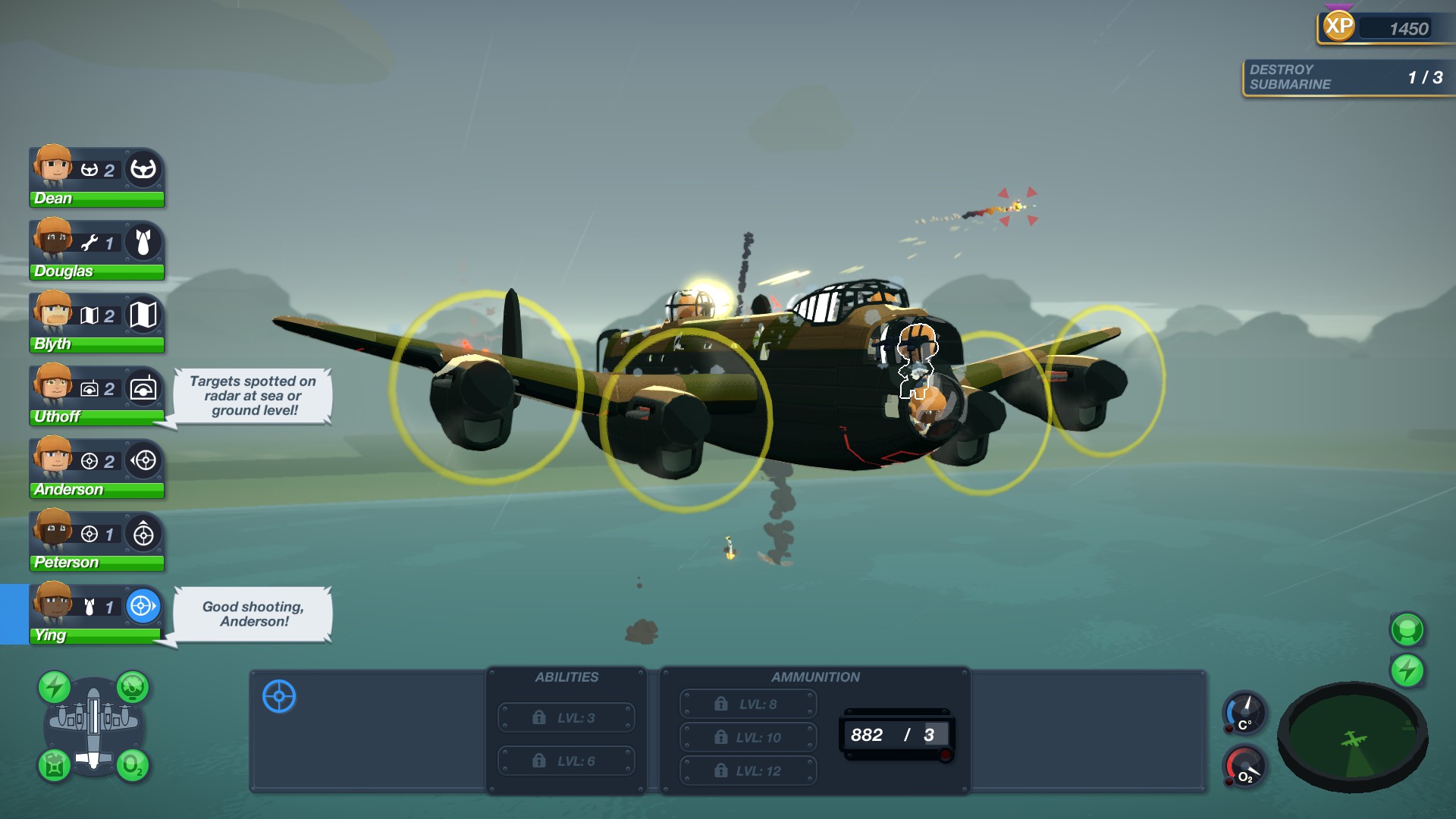
I’m going to keep testing this theory because, somehow, Bomber Crew has made me a glutton for punishment. Just before I head out on yet another mission, let me leave you with another brief anecdote.
On the last mission I flew, one of the port engines burst into flames. I’d foolishly decided to forego extinguishers, had nowhere to fly as long my navigator was bleeding out on the cabin floor and was rather busy with the night fighter that was running rings around my plane.
So it was a very peculiar kind of relief that I felt as I watched the burning engine detatch and fall toward France. It was a comfort to know that, at the very least, I had one less problem to worry about now.

